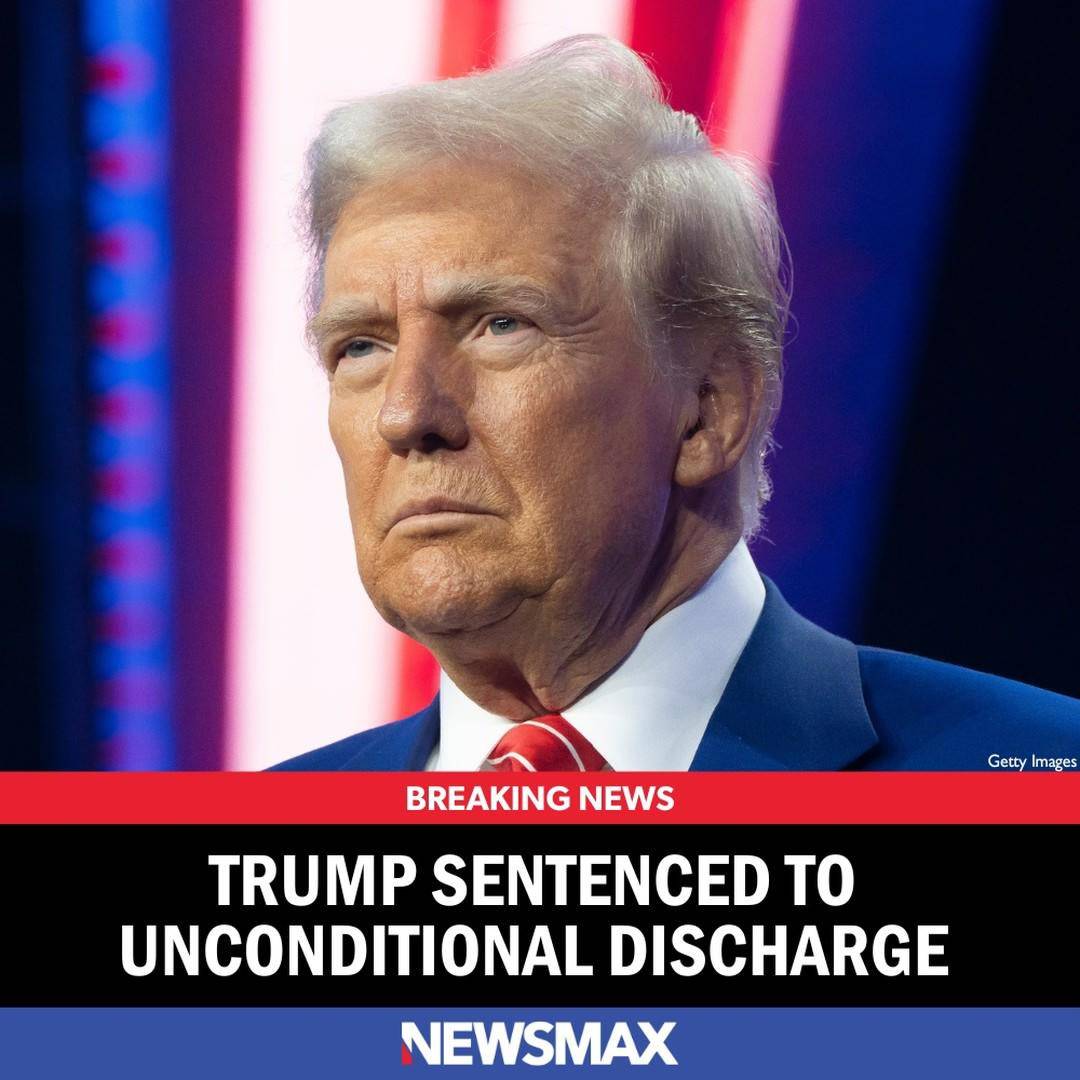Breaking News: President-elect Donald Trump Receives Unconditional Discharge in Landmark New York Trial.
In a historic and controversial ruling, President-elect Donald Trump has been sentenced to an unconditional discharge by Judge Juan Merchan in a New York criminal trial involving hush money payments. This decision, announced on Friday, has sparked intense debate across the nation and left both critics and supporters divided.
The trial, centered around allegations of falsifying business records to conceal hush money payments made during the 2016 presidential campaign, marks a pivotal moment in U.S. history. Trump is now the first president-elect to be convicted of a felony. Despite this, the court opted for an unconditional discharge, meaning no prison time or fines will be imposed. This ruling has raised critical questions about accountability, justice, and the integrity of the presidency.
The Case and the Ruling
At the heart of the case were payments allegedly made to adult film star Stormy Daniels and others to prevent damaging stories from surfacing during Trump’s first presidential campaign. Prosecutors argued that Trump falsified business records to hide these payments, resulting in 34 felony counts.
While the charges were serious, Judge Merchan took a unique approach. He emphasized that Trump was treated like any other criminal defendant, despite his status as president-elect. However, the judge also acknowledged the extraordinary circumstances surrounding the case, noting that sentencing Trump to jail or imposing fines could interfere with the functions of the presidency.
By issuing an unconditional discharge, the court effectively allowed Trump to assume office without facing immediate legal repercussions. In his statement, Judge Merchan explained that this decision was made in the interest of maintaining governmental continuity while respecting the rule of law.
Public Reactions: A Nation Divided.
The ruling has elicited strong and varied reactions. Critics argue that allowing Trump to walk away without penalties undermines the concept of equal accountability under the law. Many feel this decision sends a dangerous message that individuals in positions of power are held to different standards than ordinary citizens.
On the other hand, Trump’s supporters view the ruling as a vindication. They argue that the case was politically motivated and designed to derail his presidency. For them, the unconditional discharge represents a victory against what they perceive as a biased judicial system.
Trump’s Response and Legal Team’s Plans.
Trump, as expected, has remained defiant. He continues to deny any wrongdoing, labeling the entire trial as a “witch hunt.†His legal team has announced plans to appeal the conviction, with the aim of clearing his name entirely.
In a statement following the sentencing, Trump criticized the justice system, claiming it was weaponized against him to weaken his presidency. His rhetoric has only strengthened his support base, many of whom see him as a political outsider fighting against entrenched elites.
The Bigger Picture: What Does This Mean for the Presidency?
This case has set a precedent that will undoubtedly be analyzed for years to come. For the first time, a president-elect has been convicted of a felony and yet faces no direct consequences. This raises important questions about the legal and ethical standards to which elected officials should be held.
Moreover, the decision highlights the delicate balance between upholding the rule of law and ensuring the stability of the nation’s highest office. Critics argue that sparing Trump from penalties could embolden future leaders to act with impunity, knowing they might not face significant repercussions.
At the same time, others contend that preserving the continuity of the presidency outweighs the need for punitive measures. They argue that a sitting president, even one convicted of a crime, must be able to perform their duties without interference.
What’s Next for Trump and the Nation?
As Trump prepares to begin his second term, this legal saga will undoubtedly follow him into the Oval Office. The conviction, though seemingly toothless in terms of immediate penalties, casts a shadow over his presidency and could impact his legacy.
The political implications are equally significant. Trump’s base remains energized, viewing him as a victim of an unfair system. Conversely, his critics are likely to use this conviction as a rallying cry for stricter oversight and accountability for public officials.
The broader public is left grappling with the implications of this case. For many, it raises concerns about whether justice truly applies equally to all. For others, it serves as a reminder of the complexities and compromises inherent in governing a nation as divided and politically charged as the United States.
Conclusion.
The unconditional discharge of President-elect Donald Trump in his New York criminal trial marks a turning point in American history. It underscores the challenges of balancing justice, accountability, and the demands of high office.
While the ruling has spared Trump from immediate consequences, it has also ignited a national debate that is unlikely to fade anytime soon. Whether this decision strengthens or undermines faith in the justice system remains to be seen, but one thing is clear: this moment will be remembered as a defining chapter in the story of Donald Trump and the United States presidency.




No comments yet
Be the first to share your thoughts!